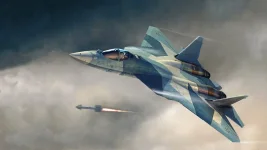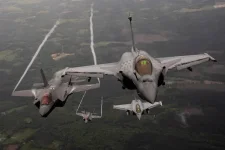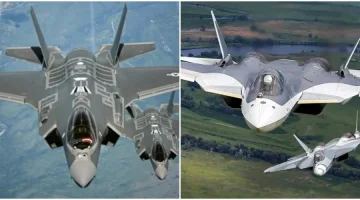- Views: 2K
- Replies: 23

The potential acquisition of the Lockheed Martin F-35 Lightning II fighter jet by India has raised significant questions about the nation's long-term strategic autonomy.
Unlike other fighter aircraft options, the F-35 is deeply integrated into a US-controlled operational and logistical network, prompting concerns that purchasing the jet could significantly limit India's independent military capabilities.
The F-35 is not designed to be a standalone platform. Its operation relies heavily on a complex ecosystem encompassing software, data-sharing, and logistics, all under the direct control of the United States.
This means that India wouldn't merely be acquiring an aircraft; it would be integrating into a comprehensive, and potentially restrictive, American military-industrial complex.
A core element of this ecosystem is the Autonomic Logistics Information System (ALIS), currently transitioning to the Operational Data Integrated Network (ODIN). This cloud-based system, managed by Lockheed Martin and the US Department of Defense, handles crucial aspects of the F-35's operation, including maintenance, mission planning, and supply chain logistics.
Close US allies, such as the United Kingdom and Australia, have experienced delays in obtaining necessary approvals through ALIS, raising red flags about the level of operational independence afforded to F-35 operators. The UK, for example, reported issues with ALIS hindering the deployment of their F-35s on the HMS Queen Elizabeth aircraft carrier.
Israel's experience with its customized F-35I "Adir" variant provides a further cautionary tale. Despite having greater flexibility than most operators, Israel still depends on ALIS for essential maintenance and operational tasks.
This demonstrates that even strategic partners of the US do not possess complete autonomy over the F-35's logistical support structure. If India were to purchase the F-35, it would similarly link its air force operations to American oversight.
Beyond logistics, the F-35 is tightly integrated with American weapon systems. The aircraft is primarily designed to utilize AIM-120 AMRAAM missiles for beyond-visual-range engagements.
Acquiring the F-35 would necessitate India to adapt its existing missile inventory, favoring US-made armaments. In contrast to platforms like the Su-30MKI (modified to carry Indian-developed BrahMos missiles) or the Rafale (compatible with European Meteor and SCALP missiles), integrating non-NATO standard weaponry onto the F-35 requires explicit US authorization. This could significantly constrain India's ability to utilize indigenous or other foreign-sourced weapon systems.
Perhaps the most significant concern lies in the classified nature of the F-35's mission systems, electronic warfare capabilities, and flight software. These crucial elements are entirely controlled and secured by the United States.
The Indian Air Force, if operating the F-35, would be unable to fully access, modify, or upgrade the aircraft's software without Lockheed Martin's direct involvement. This dependence on US permissions extends to software updates, weapons integration, and even basic operational changes.
In a potential conflict, if the US chose to restrict certain capabilities, India would have limited options. This represents a considerable compromise of India's strategic independence, effectively transforming the F-35 from a sovereign asset into a platform operated under significant US constraints.
The F-35 is undoubtedly a technologically advanced fighter jet. However, its inherent dependence on US-controlled systems raises serious questions for India, a nation that places a high value on strategic autonomy.
Without substantial changes to the F-35's operational framework, India risks becoming entangled in a rigid, US-centric military structure, potentially undermining its own national security goals.





